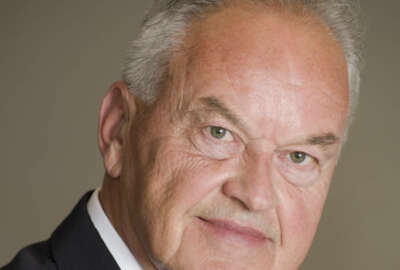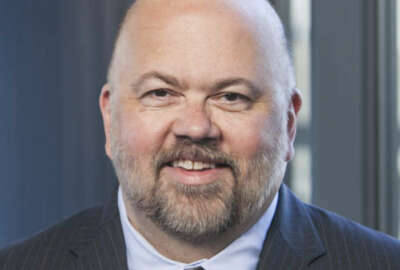
How much does Uncle Sam love you?
Does the federal agency where you work really value you as an employee and a human being? Senior Correspondent Mike Causey says there's an easy way to tell.
So just how much does your department or agency care, as in really care, about you? As Shakespeare would say, let us count the ways:
Other than expecting you to show up on time, wear clothes, do your job and not do naughty or illegal things with your computer, do you get the feeling that you are pretty much just a face in the crowd? A blip in the bureaucracy?
Short of a bonus or award, is there a way to tell that you are valued as anything other than just a GS-Whatever-In-A-Cubicle who does his or her job? How about inquiring about your health? And meaning it. As in making it easier for you to shop during the ongoing health insurance Open Season.
Federal and postal workers have until Dec. 12 to pick their 2017 health plan. It could — if you or a family member are in a catastrophic accident or are hit by a major illness — be the most important decision of your life. Premiums are going up an average of 6.2 percent for employees and retirees. But that’s an average. There are lots of plans and options (about 30 for feds in the D.C. area) and premiums vary. A lot. Even with the government picking up most of the premium (72 percent for feds, 75 percent for postal workers) the premiums can be a financial burden.
The vast majority of workers, and most retirees, do nothing during Open Season. They stay in the same plan year after year, even if premiums go up and they could get the same (sometimes better) coverage with another plan. Shopping isn’t fun, but lots of agencies have made it easier by purchasing access to the online version of Checkbook Guide to Health Plans for Federal Employees and Annuitants for their employees. The most recent to sign up for its workers is the giant U.S. Postal Service, one of Uncle Sam’s largest agencies.
Now workers at the USPS, and the departments of Labor, Transportation, Education, HHS, can shop online and customize the best plan, best premiums and plan that includes your doctor in its network on the job. Or from home. And it’s free. To you, not the government.
Other federal operations that have signed up for online health insurance shopping help for workers include the Office of Personnel Management, Peace Corps, Social Security Administration, Consumer Product Safety Commission and the Securities and Exchange Commission. Members of the American Foreign Service Association, the National Treasury Employees Union and the Professional Managers Association now have online access as part of their membership.
The Checkbook online guide, and its older brother handbook ($9.95), break down health plan and show best buys for singles, families and the new self-plus-one option. They show both the actual premium you will pay in each plan and option. But they also show how much you will be out of pocket if you have an average — or a catastrophic — 2017.
Most people focus on premiums and co-payments. And they are important. But the real reason you buy insurance (whether you think of it or not) is to cover you in a worst-case-scenario. The catastrophic coverage limit-to-you is the amount you would have to pay out of pocket if the worst happens. That limit-to-you ranges from just over $7,000 NALC consumer-driven high deductible plan, to more than $16,000 (the maximum amount you might have to pay) in the SAMBA high option.
So who loves you? And who, maybe ought to consider providing this service next year. For a list of agencies that are providing the online shopping help, click here.
If your agency/department is on the list, good for them and good for you. If not, maybe you should ask them why they’re not on the list.
Nearly Useless Factoid
Howard Helmer holds the world record for making the most two-egg omelets in 30 minutes. In 1990, he made one omelet every 23.7 seconds for a total of 427 omelets in 30 minutes.
Source: Local Hens
Copyright © 2025 Federal News Network. All rights reserved. This website is not intended for users located within the European Economic Area.
Mike Causey is senior correspondent for Federal News Network and writes his daily Federal Report column on federal employees’ pay, benefits and retirement.
Follow @mcauseyWFED





